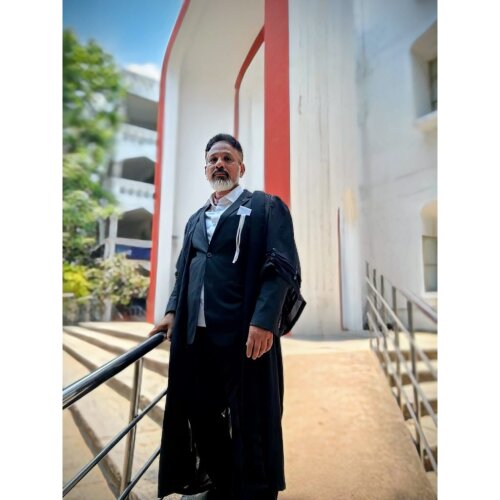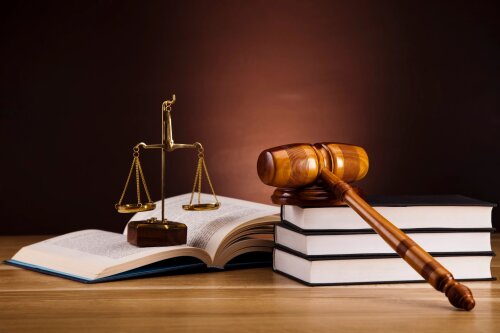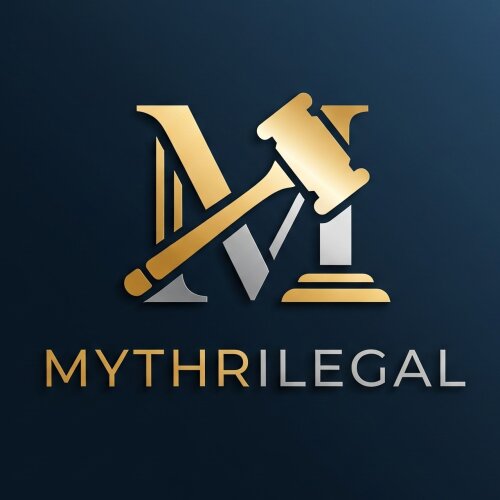Best Juvenile Law Lawyers in Hyderabad
Share your needs with us, get contacted by law firms.
Free. Takes 2 min.
List of the best lawyers in Hyderabad, India
About Juvenile Law in Hyderabad, India
Juvenile Law in Hyderabad, India, pertains to legal issues involving minors, specifically those who have not yet reached adulthood. The Juvenile Justice (Care and Protection of Children) Act, 2015 is the key legislation in this field. It seeks to ensure that children are protected, and juveniles in conflict with the law are given care, protection, treatment, development, and rehabilitation. The Act distinguishes between children in need of care and protection and those in conflict with the law, ensuring appropriate judicial proceedings and care facilities.
Why You May Need a Lawyer
There are several scenarios where you might require the assistance of a lawyer specializing in Juvenile Law, such as when a minor is involved in a criminal case, in need of care and protection, involved in custody disputes, or when navigating the legal system for adoption. Legal professionals can provide advice, represent you in court, and help ensure that the rights of the juvenile are protected in accordance with the law.
Local Laws Overview
Hyderabad, like the rest of India, follows the national framework of the Juvenile Justice Act. Key aspects of this law include distinguishing between juveniles in conflict with the law and those needing care, reducing stigmatization, and focusing on rehabilitation rather than punishment. The Act also provides guidelines for the establishment of Juvenile Justice Boards and Child Welfare Committees to manage juvenile cases and care facilities, ensuring the child's interests are paramount.
Frequently Asked Questions
What is the age limit for being considered a juvenile in Hyderabad?
In Hyderabad, and throughout India, a juvenile is defined as someone below the age of 18 years.
Are juveniles tried as adults in any situation?
In certain serious offenses, juveniles aged 16-18 may be tried as adults, depending on the nature of the crime and the circumstances.
What are the rights of juveniles under the Juvenile Justice Act?
The Juvenile Justice Act provides several rights including protection from harsh punishments, the right to legal aid, and access to rehabilitation programs.
How does the Juvenile Justice Board function?
The Juvenile Justice Board consists of a magistrate and two social workers. It handles cases involving juveniles in conflict with the law, focusing on rehabilitation rather than punishment.
What is the role of the Child Welfare Committee?
The Child Welfare Committee is responsible for the protection and care of children in need. It ensures their right to education, health, nutrition, and overall development.
Can a juvenile's criminal record be expunged?
Yes, generally juvenile records are confidential and meant to be expunged after a certain period or upon reaching adulthood to ensure no criminal stigma is attached to them.
How are parents involved in the judicial process concerning their child?
Parents or guardians are usually involved and informed throughout the judicial process, and decisions are made considering the best interests of the child.
What are the measures for rehabilitation under the Juvenile Justice Act?
Rehabilitation measures include counseling, skill development, education, and reintegration programs designed to help juveniles reintegrate into society post trial.
What happens if a juvenile runs away from a correctional home?
Efforts are made to locate the juvenile, and specific measures must be taken to ensure their safety and well-being upon return.
Can juveniles be held in police custody?
No, juveniles cannot be kept in police lock-ups. If apprehended, they should be placed in a juvenile home or under the care of an authority designated by the Juvenile Justice Board.
Additional Resources
For more information and assistance, consider reaching out to these resources:
- Juvenile Justice Board, Hyderabad
- Child Welfare Committee, Hyderabad
- National Commission for Protection of Child Rights (NCPCR)
- Local NGOs supporting juvenile rights, like Bachpan Bachao Andolan
- Legal Services Authorities providing free legal aid to children
Next Steps
If you need legal assistance in Juvenile Law, consider following these steps:
- Contact a lawyer specializing in Juvenile Law who can provide tailored advice and representation.
- Consult with the Juvenile Justice Board or Child Welfare Committee for guidance on specific cases.
- Explore legal aid options if you are unable to afford private legal counsel.
- Reach out to NGOs or government bodies dedicated to children's rights for additional support and resources.
Ensuring the welfare of juveniles and adherence to their rights is paramount, and seeking knowledgeable legal support is a key step in this process.
Lawzana helps you find the best lawyers and law firms in Hyderabad through a curated and pre-screened list of qualified legal professionals. Our platform offers rankings and detailed profiles of attorneys and law firms, allowing you to compare based on practice areas, including Juvenile Law, experience, and client feedback.
Each profile includes a description of the firm's areas of practice, client reviews, team members and partners, year of establishment, spoken languages, office locations, contact information, social media presence, and any published articles or resources. Most firms on our platform speak English and are experienced in both local and international legal matters.
Get a quote from top-rated law firms in Hyderabad, India — quickly, securely, and without unnecessary hassle.
Disclaimer:
The information provided on this page is for general informational purposes only and does not constitute legal advice. While we strive to ensure the accuracy and relevance of the content, legal information may change over time, and interpretations of the law can vary. You should always consult with a qualified legal professional for advice specific to your situation.
We disclaim all liability for actions taken or not taken based on the content of this page. If you believe any information is incorrect or outdated, please contact us, and we will review and update it where appropriate.
















